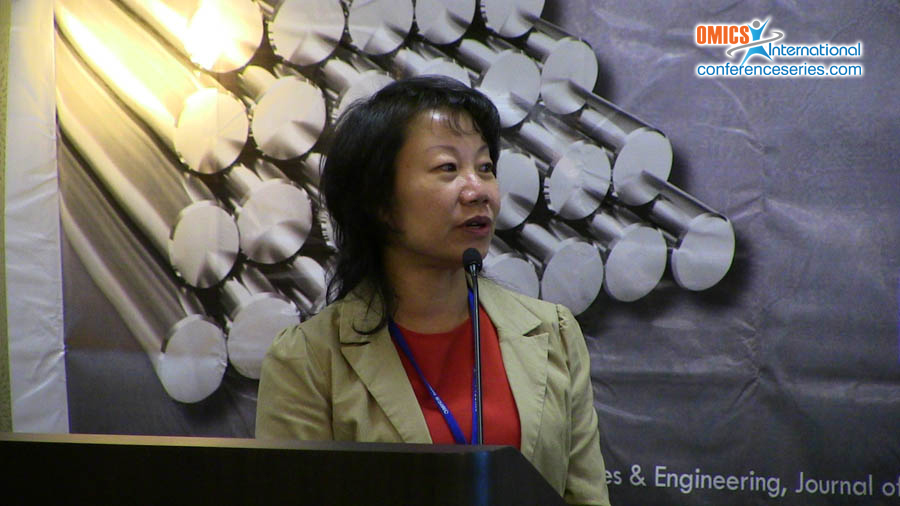
Shingjiang Jessie Lue
Chang Gung University, Taiwan
Title: Electrospun quaternized polyvinyl alcohol nanofibers with core-shell structure and their composite in alkaline fuel cell application
Biography
Biography: Shingjiang Jessie Lue
Abstract
Electrospun quaternized polyvinyl alcohol (Q-PVA) nanofibers were prepared and characterized. The as-spun nanofibers exhibited lower crystallinity than the pristine Q-PVA. The core of the fibers exhibited a more amorphous region and the outer shell contained more polymer crystals. The core-shell structure of the nanofibers provided unique ionic conduction functionality after doping with potassium hydroxide (KOH) solution. A composite consisting of 5.98% electrospun Q-PVA nanofiber mat and Q-PVA polymer matrix demonstrated enhanced ionic conductivity and suppressed methanol permeability when compared to a pristine dense Q-PVA film. Both the high conductivity and suppressed permeability were attributed to the quasi-coaxial structure of the electrospun nanofibers. The soft core of the fibers formed super ionic conductive paths, while the outer shell served as a hard sheath surrounding the amorphous core. This shell induced mass transfer resistance and created a tortuous fuel pathway that suppressed methanol permeation. Such Q-PVA composite is an effective solid electrolyte and validated using alkaline fuel cell. In a direct methanol alkaline fuel cell operated at 60°C, a peak power density of 54 mw cm–2 was obtained using the electrospun Q-PVA composite, a 12% increase compared to a cell employing a pristine Q-PVA film. These results demonstrate that super-conductive coaxial electrospun nanofibers can be prepared through a single-opening spinneret and provide an elective approach for high-performance electrolyte fabrication.
Speaker Presentations
Speaker PDFs
Speaker PPTs Click Here

